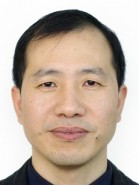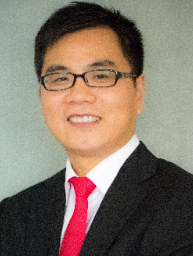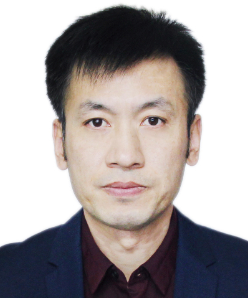
Prof. Ming Chen
Zhejiang University, China
Bio: Prof. Ming Chen received his PhD in Bioinformatics from Bielefeld University, Germany. He is a professor and PhD supervisor at the college of Life Sciences in Zhejiang University, and is the leading figure in the field of Bioinformatics at Zhejiang University. He has a long career in scientific research and education of bioinformatics and systems biology. He has published over 200 SCI academic papers in journals such as Cell, Nature, Nucleic Acids Research, and Bioinformatics, and his google scholar H-index is over 57. Prof. Ming Chen is the President of the Bioinformatics Society of Zhejiang Province, China; Committee Director of Chinese Society for "Multi-Omics and Integrative Biology", Committee Deputy Director of Chinese Society for "Modeling and Simulation of Biological Systems"; Committee executive member of Chinese Societies for "Computational Systems Biology" and "Functional Genomics & Systems Biology"; and Committee member of Chinese Societies for "Biomedical Information Technology" and "Biophysics (Bioinformatics) ".
Speech Title: Big Data-Driven Chronic Disease & Mortality Risk Prediction, and Aging Knowledge Graph for Intelligent Geroscience Discovery
Prof. Bing Ji
Shandong University, China
Bio: Professor Bing Ji is a Professor and Doctoral Supervisor at the School of Control Science and Engineering, Shandong University. He has been recognized as a Shandong Provincial "Taishan Scholar" Young Expert and a Shandong University "Future Plan" Scholar. His research focuses on artificial intelligence algorithms and applications, including deep reinforcement learning, contrastive learning, and vision-language models, as well as intelligent robotics. He has led seven major research projects, with total funding exceeding 12 million RMB. These include one key project under the National Key R&D Program, one General Program and one Youth Program from the National Natural Science Foundation of China, two High-End Foreign Expert Projects from the Ministry of Science and Technology, and one Major Innovation Project of Shandong Province. He has published 45 SCI-indexed papers in authoritative journals in the field, and has been granted 4 EU invention patents and 20 Chinese invention patents. His notable awards include the 2022 Science and Technology Progress Award (Second Class) from the Chinese Association of Automation (1st rank), the 2021 Shandong Medical Science and Technology Award (First Class, 1st rank), and the 2020 Shandong Science and Technology Progress Award (Second Class, 2nd rank).
Speech Title: 步态智能分析与疾病辅助诊断
Prof. Bin Liu
Dalian University of Technology, China
Bio: Professor Bin Liu is a Doctoral Supervisor and holds dual appointments at Dalian University of Technology (DUT) Affiliated Hospital and as a Visiting Professor at Ritsumeikan University, Japan. He serves as the Director and technical lead of the Liaoning Provincial Key Laboratory of Medical Simulation Technology. Recognized as a high-level talent in Dalian, he is also a member of the review panel for GF projects and holds memberships in several prestigious academic societies, including CCF, ACM, and MICCAI. His significant roles in professional committees include serving as a Standing Committee Member of the Neuroregeneration and Repair Committee of the Chinese Research Hospital Association. Professor Liu earned his Bachelor's, Master's, and Ph.D. degrees (the latter through a top-ranked direct-entry program) from DUT between 2000 and 2009. He further conducted joint research as a visiting scholar at the National University of Singapore from 2018 to 2019. His primary research focuses on computer vision, graphics, intelligent medical image processing and analysis, and computer-assisted 3D preoperative planning and simulation. He has led over 14 research projects, including 4 grants from the National Natural Science Foundation of China. His scholarly output includes more than 60 international journal papers as first or corresponding author, over 30 authorized Chinese invention patents as the primary contributor, and more than 40 software copyrights. Additionally, he has guided undergraduate and postgraduate students to win over 30 gold and silver awards in national and provincial competitions such as the "Challenge Cup" and "Internet Plus".
Speech Title: Research on Medical-Engineering Interaction Based on Intelligent Graphics and Images


